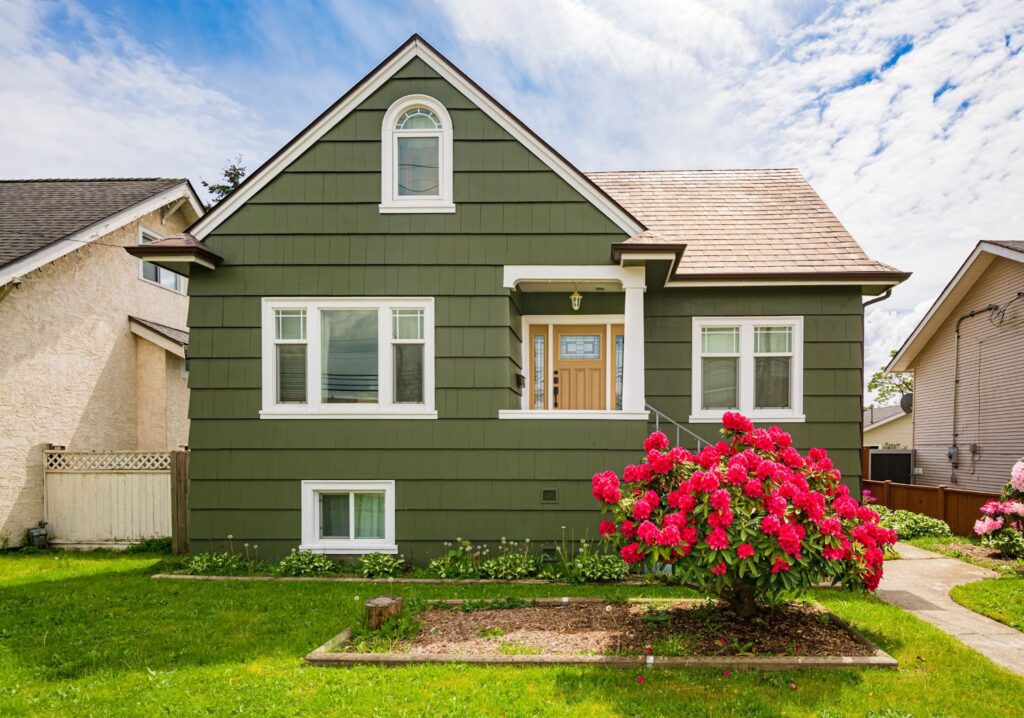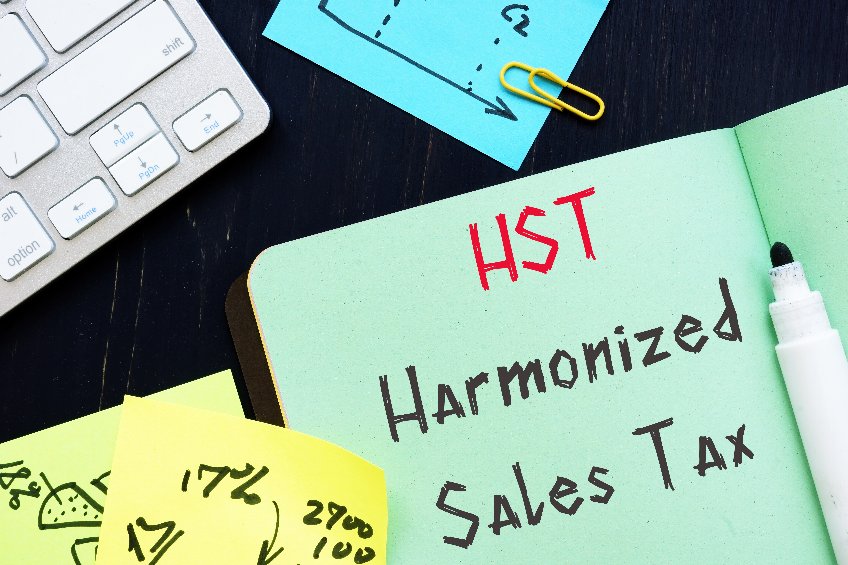Last Updated on October 24, 2023 by Corben Grant
Buying and owning a home is an expensive endeavour, and the various taxes a homeowner must pay can add up fast. Especially for those who are using their property as an investment and are interested in getting the maximum return available to them, minimizing their tax payments can be a major way to make owning a home less expensive.
When it comes to homes there are many different applicable taxes while some may be difficult to avoid, such as the , others can be reduced or eliminated entirely. There are numerous costs that a homeowner can write off on their taxes–without landing in trouble with the Canada Revenue Agency.
The issue with these tax savings is you can’t take advantage of them if you don’t know about them. That’s why today we are going to cover some of the things that you need to know you can claim on your taxes, as well as the things you can’t.
Can you claim property taxes?
When you own a home, you pay property taxes to help fund your local municipality and all the services they provide to you as a homeowner. Unfortunately, the cost of property tax can also be one of your largest costs outside of your mortgage payments.
The good news is that in some cases you can deduct property taxes from your tax owing. The main time this will be applicable is when you are . In the case of rental properties, you can claim up to the full amount of your property taxes.
In order to determine how much you can claim, you need to simply divide the total price of property tax by the period of time your home was rented. For example, if you rented the whole year, you can claim all your property taxes, if you only rented for half the year, you could claim half.
The same may be true for renting a portion of your home – rent only a quarter of your home out and you can only claim a quarter of your property tax at most.
There are also some other scenarios when you can claim some of your property taxes. One such scenario is if you are working from home as an employee who makes a commission. Another would be if you are self-employed and use your home for business purposes. Figuring out exactly how much you can claim may be complicated, so we recommend consulting with a tax professional.
When filing your tax deductions, you will need to use the T776 Statement of Real Estate Rentals form, a T2125 Statement of Business or Professional Activities depending on if your rent is collected as a business income or not, or a T777 Statement of Employment Expenses, if you are claiming employment expenses.
Unfortunately, you can not deduct property taxes on your principal residence if you are not renting or using it for any business purposes.
Can you claim mortgage payments?
In Canada, there is no scenario in which your principal mortgage payments can be deducted from your taxes. This is true even if your home is a rental property, or is used for your workspace or business.
Can you claim mortgage interest?
Though you can’t claim your mortgage principal on your taxes, you may be able to claim your mortgage interest. Interest can be a pretty big part of your total mortgage cost, so though you can’t claim the full mortgage payment, deducting your interest will nonetheless result in pretty big tax savings.
Just like with your property taxes, whether or not you are able to deduct your mortgage interest will depend on how it is used. The general rule is if your property is used for generating income you can likely deduct some or all of your interest cost.
The same rule also applies with respect to how much mortgage interest you can claim on your taxes: you may only claim an amount proportional to the amount of time and space your rental took up.
You may also be able to claim a portion of your mortgage interest if you are self-employed and a portion of your home is used for business purposes.

Can you claim home renovations?
Renovating your home can be a rewarding pursuit, but can also be quite expensive. There is in fact a way to receive a tax credit for some or all of a home renovation, though they tend to be restricted to very specific renovations.
In most cases, home renovations that are able to be tax deducted will generally only be those that are undertaken in order to improve a home for an elderly or disabled person. These renovations must also be among those on a list of eligible expenses in order to be deducted. These include things like handrails, wheelchair ramps, and accessible doorways.
The purpose of these tax credits is not so that people can save money by redoing their kitchen or installing a new deck. Rather, they are intended to help make homes more safe and accessible for those in need and to help reduce the cost to these groups who often face financial hardship as a result of their limited ability.
The home accessibility tax credit is available federally, and many provinces offer their own version. The federal government also offers tax deductions for multi-generation home renovations as well as “substantial renovations”. Another similar option is the Medical expenses tax credit, which allows you to claim renovations necessary for medical purposes. These are usually non-refundable tax credits, meaning you can only reduce your taxes owing, and will not receive any additional difference back.
Of the provinces, only Saskatchewan offers a less restricted renovation tax credit that is applicable to a much wider range of renovations.
, and be sure to consult a tax professional before you make any costly renovations, to be sure they are able to be deducted.
Can you claim home office expenses?
Home office expenses are another area where you may be able to claim some expenses on your taxes, though there are some specific guidelines about what does and does not qualify. In the last two years, however, work-from-home arrangements have become so common that the CRA has offered a new means of claiming work-from-home expenses that uses a simple flat rate calculation.
If you choose not to use this flat rate calculation, you will need to calculate the exact amount of all eligible expenses that you used towards your job, not simply their total price. This can be a bit of a lengthy calculation and will require you to have a lot of supporting documentation to prove your expenses. On the other hand, it will allow you to go far more in-depth on your claim if you feel the flat rate is not appropriate for you and can net you additional tax savings.

Both of these claims can be submitted with your tax return using a T777s, or a T777 if you are claiming additional employment expenses. , and if you plan on using the detailed method you should consider consulting with a tax advisor to help you get everything in place.
Can you claim moving expenses?
Another home-related expense that many may not realize they can deduct is their moving expenses. As if buying a house isn’t expensive enough, the move to your new home can add an additional cost on top of that. The CRA allows buyers to deduct a reasonable amount of moving expenses in a few select circumstances.
Whether or not you qualify will depend on the reason for your move as well as how far you are going. If you are relocating for a job or to attend a post-secondary program, you may be eligible, provided your new home is at least 40km closer to your job or educational institution.
Eligible expenses for a moving expenses tax deduction include the cost of a title transfer, the cost of officially changing your address on any documents, vehicle costs and more.
Other tax savings options for homeowners
These additional options aren’t necessarily expenses you can claim, but they are ways you can reduce taxes related to your home.
Home Buyers Amount (formerly Home Buyers Tax Credit)
The Home Buyers Amount is a tax credit designed to help first-time home buyers to save a bit of money on their purchases. Provided you have purchased an eligible home, and no one involved in the purchase has owned another home in the last four years, you may be eligible for a $5000 tax credit, and you may split it with your partner as you like.
This is not to be confused with the Home Buyers Plan, which first-time buyers can use to borrow money from their Registered Retirement Savings Plan. Both options are a great choice however and can be used alongside one another.
Land transfer tax rebates
In many provinces, you will pay a on any property transfer, and this can be a hefty amount, especially in areas like Toronto where both municipal and provincial tax apply. Luckily, some areas allow you to get a rebate on these taxes.
Most often these are another measure to help first-time home buyers to purchase their first home. A rebate of this type is available in Ontario, British Columbia, and Prince Edward Island, as well as on the municipal level in Toronto (meaning first-time home buyers here can actually get a double rebate.)
Though the rebate, its terms, and eligibility conditions will vary by region, buyers can potentially save thousands of dollars on their home purchase if they choose to use this rebate.

GST/HST new housing rebate
Generally, there is no GST/HST required on home sales, though this is notably not true in the case of new home purchases. When you buy or build a brand new home you will probably end up having to pay GST/HST on the purchase. Luckily, however, you can often get a rebate for some or all of this value.
Before you can claim this rebate however you will need to make sure you are eligible, as simply building a home is not enough. First of all, the home you build or buy must be your principal residence, so new rental builds are out of luck. Your home also must not exceed $450,000 in value when completed. Mobile homes and floating homes are also eligible under this rebate.
Conclusion
As you can see, there are numerous ways that a homeowner can attempt to reduce what they owe on their taxes in order to help save them money. Unfortunately, there are a whole range of different tax implications when it comes to owning a home, and even if you can reduce your taxes in some areas, you’ll never be able to reduce your taxes entirely.
The most important thing to note is that tax laws can get very complicated very fast, and use a lot of technical jargon that you may not be familiar with. Deciphering if you are eligible for a given tax can be hard enough, but calculating your actual deduction can be a whole other issue. If you fail to interpret the tax regulations properly yourself, you risk either not deducting as much as you could have and missing out on savings, or misreporting your taxes and facing an audit or penalties.

All this is to say that when you start to look into ways to approach reducing your taxes, especially in real estate where many different taxes can apply at different times, you need to make sure you consult with professional help. A professional tax advisor can help you to save a lot of money that you otherwise would miss out on, and will prove well worth their costs.
With that warning out of the way, hopefully, you at least now have a better understanding of areas you can begin to look for tax savings on your home or other real estate assets. Best of luck!
Corben joined CREW as a relative newcomer to the field of real estate and has since immersed himself and learned from the experts about everything there is to know on the topic. As a writer with CREW, Corben produces informative guides that answer the questions you need to know and reports on real estate and investment news developments across Canada. Corben lives in Guelph, Ontario with his partner and their two cats. Outside of work, he loves to cook, play music, and work on all kinds of creative projects. You can contact Corben at corben@crewmedia.ca or find him on Linkedin at https://www.linkedin.com/in/corbengrant/.









